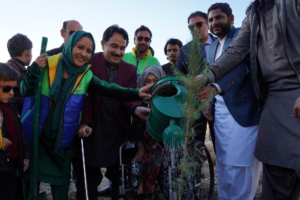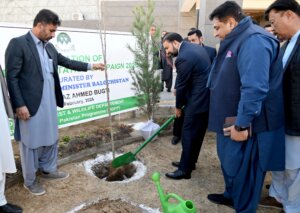Chandni Kakar:
In Pakistan’s Pashtun areas, where traditions run deep and family ties are paramount, weddings are not just celebrations of love but also complex negotiations of social and financial arrangements. Among the many customs observed, one of the most significant is the practice of Walwar, akin to the bride price seen in Pakistan’s Pushtun areas as well as in neighboring Afghanistan.
In the Balochistan province, nestled amidst the craggy mountains and arid plains, lies a small Pashtun village named Gulzarabad. Here, the rhythm of life is dictated by age-old customs and traditions, and weddings are the pinnacle of societal events.
Amidst the preparations for the wedding of Zainab, the daughter of a respected Pashtun elder, Malik Abdul Rahman. Zainab, a vision of grace and modesty, has caught the eye of Shahid, a young man from a neighboring village, whose family has long-standing ties with the Rahmans.
The negotiations for Zainab’s wedding begin in earnest as Shahid’s family sends a formal proposal to Malik Abdul Rahman. Gathered in the humble courtyard of the Rahman household, the families embark on the intricate dance of negotiations, a delicate balancing act between tradition and practicality.
The bride’s price, known as Walwar, hangs heavy in the air as both families deliberate over its amount. Malik Abdul Rahman, a man of principle, is keenly aware of the pitfalls of exorbitant bride prices. He understands the burden it places on young grooms and their families, often leading to financial strain and debt.
Drawing inspiration from the winds of change sweeping through the region, Malik Abdul Rahman proposes a modest bride price, one that reflects the true essence of the tradition without succumbing to its extravagance. His stance is met with nods of approval from both families, signaling a departure from the ostentatious displays of wealth that have become all too common.
The negotiation process, though lengthy, is imbued with a sense of mutual respect and understanding. Both families recognize the importance of preserving their heritage while adapting to the realities of the modern world. It is a testament to the resilience of Pashtun culture, where tradition evolves without losing its essence.
As the auspicious day dawns, Gulzarabad comes alive with the sounds of joyous celebration. The village elders gather beneath the ancient banyan tree to witness the solemnization of vows, a sacred bond forged amidst the timeless backdrop of rugged mountains and vast expanses.
Zainab, radiant in her bridal attire, steps into the adorned car, a symbol of her journey into a new chapter of life. With Shahid by her side, she embarks on a path paved with hope and promise, guided by the wisdom of generations past.
In the weeks that follow, whispers of the wedding of Zainab and Shahid echo through the narrow lanes of Gulzarabad, a testament to the triumph of love over tradition. Their union serves as a beacon of hope for future generations, a reminder that amidst the complexities of life, love endures, and traditions evolve.
And so, in the heart of Balochistan, where the winds of change blow softly across the rugged landscape, the customs of old and the dreams of tomorrow converge in harmony, weaving a tapestry of resilience and renewal.






